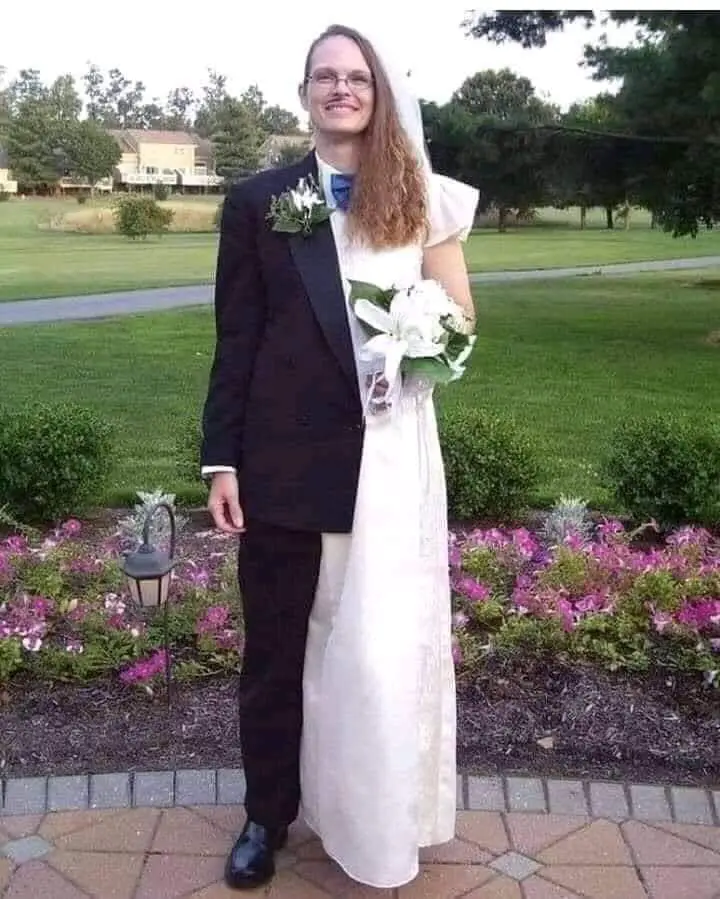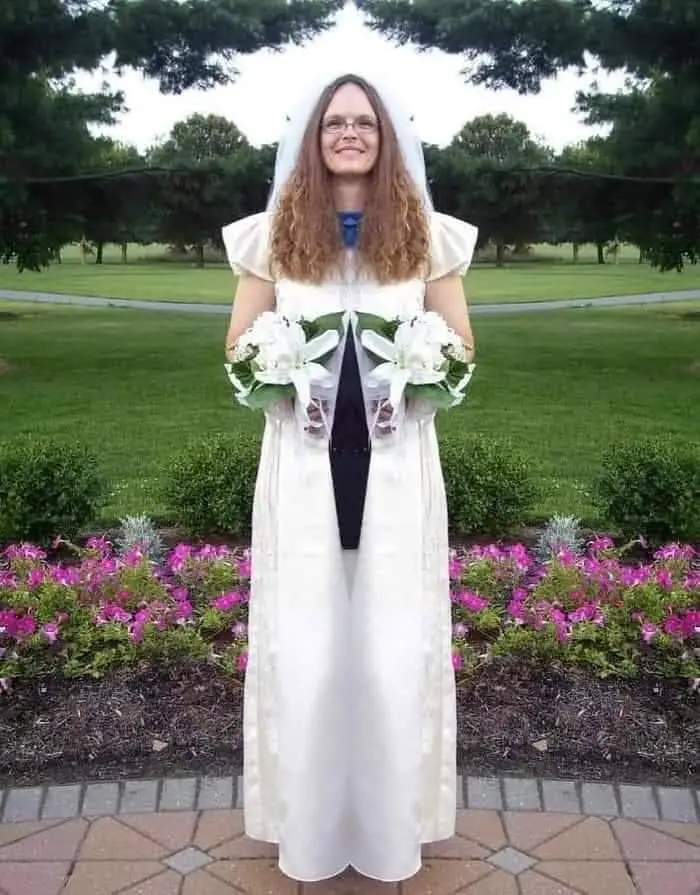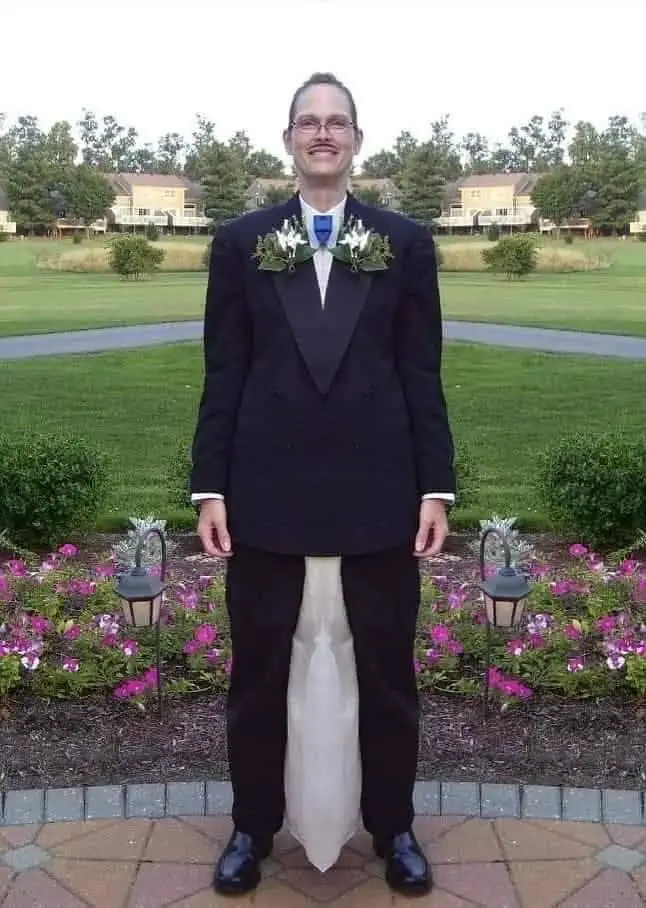In a world where marriage is often seen as the ultimate symbol of love and commitment, Antoine Cheval, a Frenchman, took an unconventional path—he married himself. After numerous heartbreaks and unanswered proposals, Antoine decided to honor the most significant relationship he had: the one with himself. This act of “sologamy,” or self-marriage, goes beyond a personal statement; it’s part of a growing movement where people prioritize self-love, independence, and personal fulfillment over traditional partnerships.
Who is Antoine Cheval? A Journey of Self-Acceptance and Resilience

Antoine Cheval’s decision to marry himself was not impulsive. As a man who had faced countless rejections and unreciprocated love, Antoine chose to redefine his outlook on relationships. Rather than waiting for someone else to affirm his worth, he decided to publicly declare his dedication to himself. His self-marriage ceremony included vows, guests, and even a reception—complete with a promise to love himself fully, no matter the challenges.
Antoine’s journey of self-marriage has become symbolic, challenging societal norms and inspiring those who feel they are “incomplete” without a partner. His message is powerful: sometimes, the most profound love story is the one you create with yourself.
What is Sologamy? Understanding the Meaning of Self-Marriage
So, what exactly does it mean to marry yourself? Known as sologamy, self-marriage is an act of self-love and commitment to oneself. While sologamy isn’t legally recognized, it holds substantial symbolic weight for those who practice it. It represents an affirmation of self-worth, resilience, and independence—an opportunity to prioritize one’s own happiness and well-being.
Critics argue that sologamy lacks the legitimacy and meaning of traditional marriage, but supporters view it as an empowering decision, a way to choose oneself over societal expectations. In choosing self-marriage, people like Antoine Cheval emphasize that love, respect, and happiness come from within and aren’t defined by romantic partnerships.
What Does a Self-Marriage Ceremony Look Like?
Self-marriage ceremonies often resemble traditional weddings. These events can include vows, a formal celebration, a reception, and guests who come to witness this unique act of commitment. Some individuals prepare for their self-marriage with self-reflection practices, counseling, or even self-care retreats, solidifying their personal values and strengthening emotional resilience.
For Antoine Cheval, his self-marriage ceremony was a celebration of self-love. Sologamy, while often practiced by affluent women, is not bound by gender, age, or background. People from various walks of life choose self-marriage to honor their journey and commitment to themselves, proving that self-love is for everyone.
Notable Examples of Sologamy: Embracing Self-Love Around the World
Antoine Cheval is not alone in his choice of self-marriage. Across the globe, others have embraced sologamy as a way to reclaim their independence and assert self-worth.
- Sophie Tanner (United Kingdom, 2014): British photographer Sophie Tanner made headlines when she married herself in a ceremony with friends and family. Tanner celebrated her independence, proving that self-love can be as fulfilling as traditional romance.
- Laura Mesi (Italy, 2017): Italian fitness trainer Laura Mesi chose sologamy after a challenging breakup. Her self-marriage symbolized a powerful act of personal empowerment, reminding herself—and others—that self-worth does not depend on relationship status.
- Kshama Bindu (India, 2022): Kshama Bindu, from India, made history as the first Indian to marry herself in a traditional Hindu ceremony. Her sologamy celebration included cultural rituals, underscoring her pride in her heritage and her individuality.
These examples show that sologamy is a global movement, one that transcends cultural, social, and gender boundaries. Sologamy celebrates personal independence and sends a message to society: individuals can feel complete and fulfilled without a romantic partner.
Self-Marriage as a Movement: Challenging Norms, Embracing Self-Love

Sologamy is more than a personal declaration; it challenges deeply ingrained societal expectations about relationships and self-worth. At its core, self-marriage is about self-acceptance, emotional independence, and finding fulfillment on one’s own terms. It disrupts the narrative that marriage is the pinnacle of personal success, reminding us that love and happiness don’t necessarily require a partner.
For individuals like Antoine Cheval and others who choose this path, self-marriage is a bold affirmation of their own value. Their stories show that it’s possible to be single and deeply fulfilled, challenging the notion that happiness relies on finding a romantic partner. Sologamy is a reminder that self-respect and self-love are just as meaningful as traditional forms of commitment.
Antoine Cheval’s Legacy and the Influence of Self-Marriage

Antoine Cheval’s choice to marry himself has inspired countless others to rethink their views on love and relationships. His decision challenges society to broaden its understanding of commitment, to accept that love doesn’t always follow conventional paths. By choosing himself, Antoine reminds us that genuine happiness starts with self-acceptance and self-respect.
In a world where external validation often defines self-worth, Antoine’s story shows the power of inner strength. While romantic relationships can certainly bring joy, self-love is foundational and unshakeable. For those who choose sologamy, it’s a pathway to greater self-confidence, resilience, and contentment.
Conclusion: The Power of Choosing Yourself
Antoine Cheval’s self-marriage may seem unconventional, but it carries a profound message about the importance of self-love. His decision to marry himself, following years of rejection, highlights the need to prioritize oneself in a world that often equates worth with romantic relationships. While sologamy may not be for everyone, it is a meaningful act of empowerment for those who embrace it.
So, whether you view sologamy as a trend or a movement, one thing is clear: choosing to love yourself is a radical act worth celebrating. Antoine’s story, along with those of others who have taken this path, invites us all to consider a vital question: what if the most meaningful commitment we can make is the one we make to ourselves?


